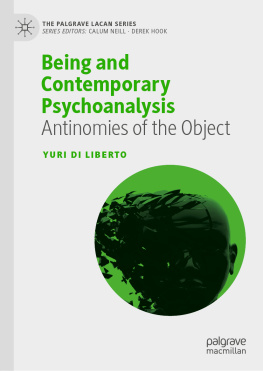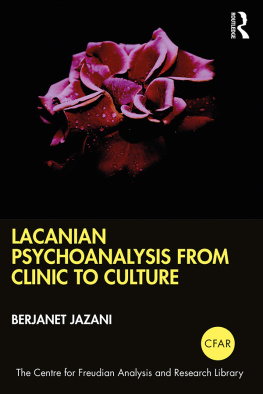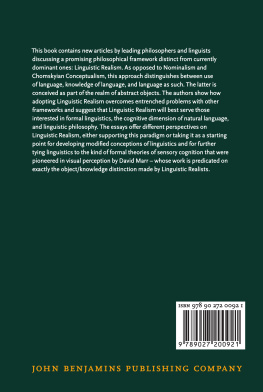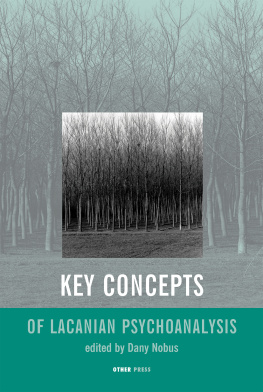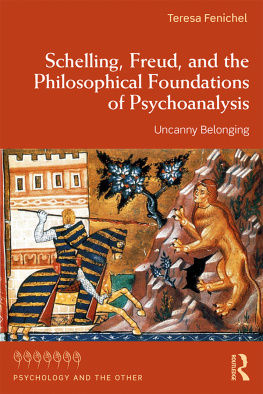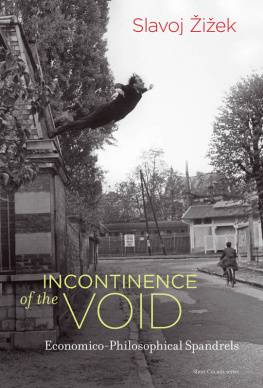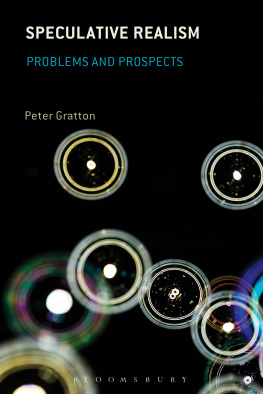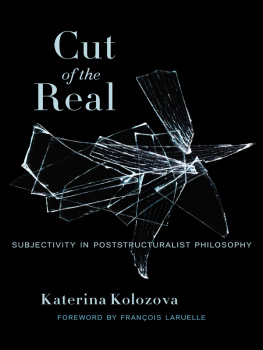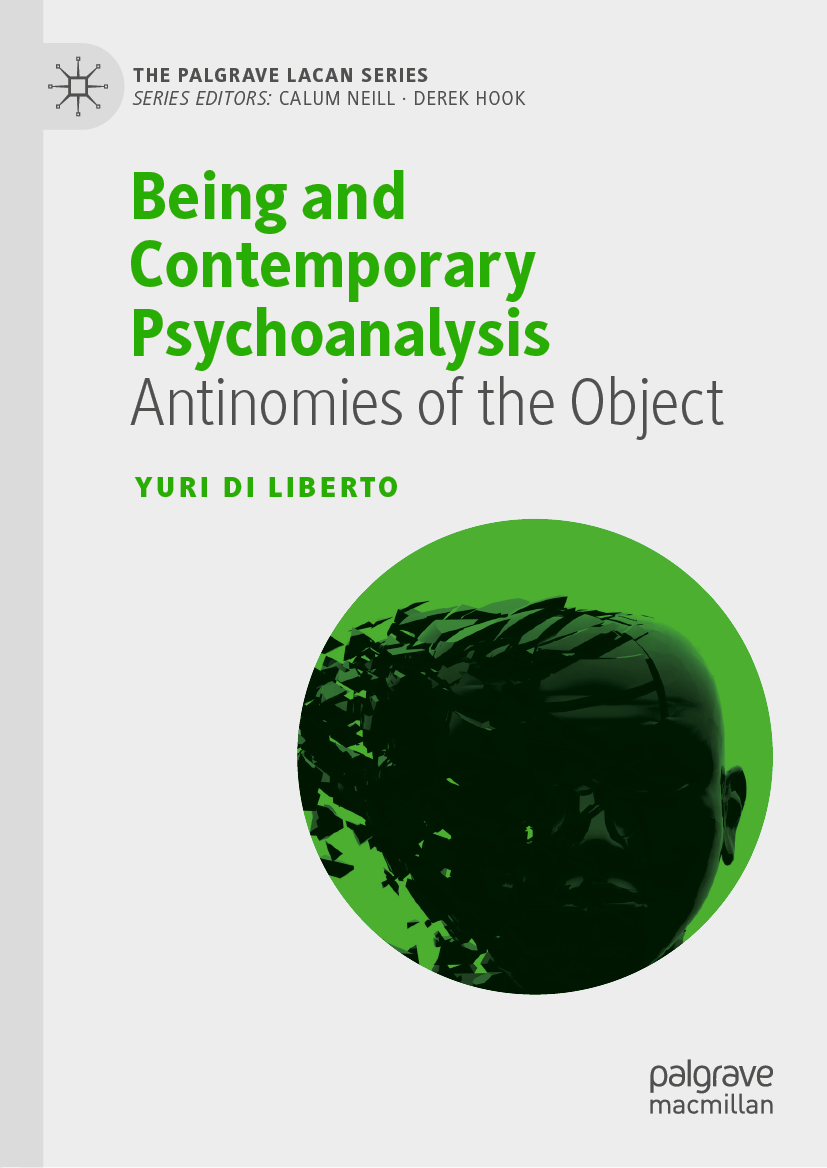The Palgrave Lacan Series
Series Editors
Calum Neill
Edinburgh Napier University, Scotland, UK
Derek Hook
Duquesne University, Pittsburgh, USA
Jacques Lacan is one of the most important and influential thinkers of the 20th century. The reach of this influence continues to grow as we settle into the 21st century, the resonance of Lacans thought arguably only beginning now to be properly felt, both in terms of its application to clinical matters and in its application to a range of human activities and interests. The Palgrave Lacan Series is a book series for the best new writing in the Lacanian field, giving voice to the leading writers of a new generation of Lacanian thought. The series will comprise original monographs and thematic, multi-authored collections. The books in the series will explore aspects of Lacans theory from new perspectives and with original insights. There will be books focused on particular areas of or issues in clinical work. There will be books focused on applying Lacanian theory to areas and issues beyond the clinic, to matters of society, politics, the arts and culture. Each book, whatever its particular concern, will work to expand our understanding of Lacans theory and its value in the 21st century.
More information about this series at http://www.palgrave.com/gp/series/15116
Yuri Di Liberto
Being and Contemporary Psychoanalysis Antinomies of the Object
Yuri Di Liberto
University of Calabria, Rende, Cosenza, Italy
The Palgrave Lacan Series
ISBN 978-3-030-18475-9 e-ISBN 978-3-030-18476-6
https://doi.org/10.1007/978-3-030-18476-6
The Editor(s) (if applicable) and The Author(s), under exclusive license to Springer Nature Switzerland AG 2019
This work is subject to copyright. All rights are solely and exclusively licensed by the Publisher, whether the whole or part of the material is concerned, specifically the rights of translation, reprinting, reuse of illustrations, recitation, broadcasting, reproduction on microfilms or in any other physical way, and transmission or information storage and retrieval, electronic adaptation, computer software, or by similar or dissimilar methodology now known or hereafter developed.
The use of general descriptive names, registered names, trademarks, service marks, etc. in this publication does not imply, even in the absence of a specific statement, that such names are exempt from the relevant protective laws and regulations and therefore free for general use.
The publisher, the authors and the editors are safe to assume that the advice and information in this book are believed to be true and accurate at the date of publication. Neither the publisher nor the authors or the editors give a warranty, expressed or implied, with respect to the material contained herein or for any errors or omissions that may have been made. The publisher remains neutral with regard to jurisdictional claims in published maps and institutional affiliations.
Cover illustration: morkeman/gettyimages
This Palgrave Macmillan imprint is published by the registered company Springer Nature Switzerland AG
The registered company address is: Gewerbestrasse 11, 6330 Cham, Switzerland
To Elvira
and to all the blue flowers out there
Acknowledgements
This book wouldnt have been possible if it wasnt for the creative environment of the University of Calabria and its doctoral program. The courses, seminars and dialogues of the past two years all led to this book. It is with the Lacanian seminars held by Felice Cimatti and Fabrizio Palombi that the germs of this book were put. I would also like to thank Carlo Serra for our talks during these years.
My friend and colleague Claudio DAurizio doesnt know perhaps, but our walks in Cosenza were essential. As well as our endless dialogues about philosophy and psychoanalysis.
Im also thankful for everything that didnt have a direct impact on the book but that nonetheless nourished my ideas indirectly. All my friends and colleagues from Bologna, Rome and Palermo that have been supportiveone way or anotherof my works.
Im deeply thankful to Francesco La Mantia. It is by sharing our ideas that I could refine some of the arguments of this book. And I also would like to thank Francesco for the hints and suggestions that here and there helped me enriching some of my arguments.
I have to mention the indispensable help of Fernando Armellini and thank him once again for the Hebrew terms I mention in Chapter of this book. Im very thankful to Adrian Johnston, whose works helped me in enlightening some crucial aspects of ontology and psychoanalysis; also, I have to thank him for supporting the overall projects idea since the start.
I would like to thank Robert N. McKinley, Brendan Rome and Justin M. Pearce from the University of New Mexico for their terrific work while helping me during the review of the manuscript.
Furthermore, this book wouldnt have been possible if it wasnt for Joanna ONeill and her patient work.
Finally, Im very grateful to Calum Neill and Derek Hook for believing in my project and welcoming it; I am very proud to be part of their series at Palgrave.
Introduction
It is historically evident that psychoanalysis was born from philosophical premises. It was born through a refinement on the philosophical questioning of being and subjectivity and their relationships. Inasmuch as philosophy covers the possibility of theorizing about Being as such, psychoanalysis entered the scene as an attempt to reintroduce subjectivity in a scientific fashion. That was, at least, Freuds plea for a clear theory about how civilization shapes the subject in the early stages of its history.
It is with psychoanalysis that the pathological regains its space, this time acknowledging its own intrinsic logic. The symptom is not an out-of-the-norm; it is instead a quintessential element of the human animal.
With Jacques Lacan, this basic derangement of civilization becomes a matter of how and to what extent language shapes the subject in its bodily existence. Or, to put it another way, Lacans often rigorous re-reading of Freud has led him to focus on the operations of language and how they shape (and are shaped by) the subject itself.
Because of the acknowledgment of this linguistic agency in subjective life, it has become fashionable to portray psychoanalysis as a kind of language-centered idealism. It is not surprising, indeed, that already Freud had to face similar accusations.
At a first glance, it would seem that psychoanalysis cuts off the Real: objecthood is itself determined either by fantasies or by plain hallucinations.
This is what various forms of philosophical realism are arguing when it comes to psychoanalysis.
The accusation of linguistic idealism lies next to the attitude to portray psychoanalysis as an idealistic dimension. A subject is what is represented by a signifier to another signifier, to recall Lacans famous diktat. Subjectivity lies in the middle of a mismatch within the realm of words. Subjectivity, in this view, has to do (or coincides with) an attempt : it is an attempt to fit into the order of meaning (or of Meaning with capital M).
Yet psychoanalysis, if closely explored, states that it is by

